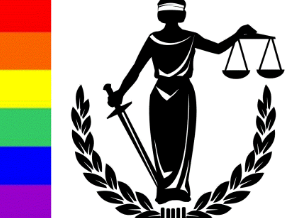At the end of last year, the case of a worker from Caçapava (SP) who won a case in the Labor Court against his former employer due to homophobic discrimination was reported. Although the company did not carry out acts that directly discriminated against the employee (such as a salary difference), Jeferson Rodrigues Florêncio was the victim of homophobic bullying by his boss, who made inappropriate comments and jokes. The judge in the case, which began in mid-2011, sentenced the company to respond for moral damages in the amount of R$30.
For many people it may seem that episodes of homophobia at work are a rarity, but the truth is that they are not. According to the Report on Homophobic Violence prepared by the Human Rights Secretariat of the Presidency of the Republic for the year 2012, victims and aggressors know each other in 60% of complaints, which happen most frequently at home, on the street and, thirdly, , in the work environment. As we don't know when it will be our turn, it is better to know in advance what your rights are in similar cases.
First, we have to keep in mind that in law everyone has the right to something. This is obvious. But to be entitled to something, you need to prove that you have that right. This is what we call the "burden of proof": whoever alleges has to prove it. In cases of blatant differences between the parties, such as in consumer law, it is common for judges to reverse this burden, so that the stronger party (the company) denies the allegations of the weaker party. In cases of discrimination, however, there is still no similar institute – except in cases of domestic violence, in which the judge gives greater credibility to the victim. Therefore, we have to work with what we have.
If you realize that you are being a victim of homophobia at work, don't waste time and try to gather evidence in your favor, such as audio recordings, video recordings and emails. Do not wait for the situation to become unsustainable, because in the event of an emergency you need to take care of your physical and psychological integrity. In plain English, you won't have the brains to go after gathering evidence against your employer. In addition to this evidence, it is common to use witnesses. You can ask for a written, notarized statement or just the person's name and address so the judge can call them to testify. The problem, however, is that an employee rarely testifies against their company – and there is no such thing as an anonymous witness. So, try to protect yourself with evidence that does not depend on people's good will.
Furthermore, try to report the situation to competent bodies. In São Paulo we have the Center to Combat Homophobia, a City Hall organization located in Pátio do Colégio n. 5, for example. Furthermore, it is important to register a Police Report at a Regional Labor Office, to record the fact. Complaints do not constitute proof of a fact. They are merely unilateral statements, that is, they only tell the version of the fact from the victim's perspective. But they have a great weight for public bodies to work with public policies, to act within their competences and, individually, they have the psychological function of reminding us that we have an issue to be resolved. Every time you look at that BO you will remember that you have scores to settle. Otherwise, it's easy to end up leaving it aside to avoid "headaches".
And speaking of which, anyone filing a compensation claim must also prepare for possible challenges. Jeferson himself, who won the compensation in Caçapava, says that he faced difficulty getting back into the market because he was taking action against an employer. That's why it's good to be prepared.
Those who file a compensation claim with little evidence have a lower chance of winning. Hence the need to be advised by a good lawyer. There is evidence that is easy for the victim to obtain, but, when taken by surprise, it is inevitable that a professional will be needed to request evidence that contributes to the success of the action.
The Labor Court is relatively sensitive to workers' rights and, recently, is increasingly open to cases of homophobia. Either we take advantage of this moment to assert our rights, or we will remain hostage to prejudice. Homophobia does provide compensation.
Thales Coimbra is a specialist in LGBT law; graduated and master's degree in legal philosophy from the Faculty of Law of USP, where he studies homophobic hate speech; he is the founder and coordinator of Geds – Study Group on Law and Sexuality; is a columnist on Rights on the portals A Capa and Gay Brasil. www.rosancoimbra.com.br/direitolgbt



